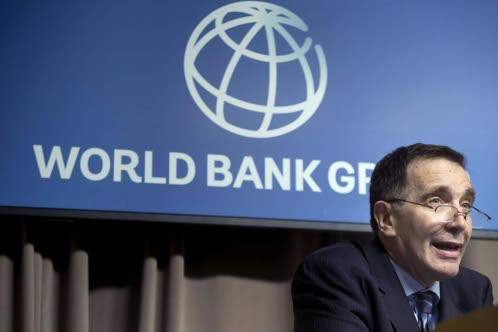Chief economist for Latin America and the Caribbean, Carlos Végh, has deemed the region’s fiscal policy as precarious with an urgent need for further adjustment, as growth in China and the United States continue to trend upwards.
Végh gave the prescription Wednesday in a World Bank report titled ‘Growth vs Inflation, Latin America and the Caribbean’s Difficult Balance’. He said that since the international environment will be relatively stable in the near future, the region, above all Jamaica with a debt to GDP ratio of over 80 per cent, will now have to strengthen its own growth sources by means of structural reforms and increasing international trade both inside and outside the region.
Already the island is undergoing a number of reforms under existing arrangements with the International Monetary Fund, but Jamaica could be in need of further reforms to stimulate the economy while guarding against further depreciation of the local currency and increased inflation.
Végh said that while growth for Latin America and the Caribbean has rebounded to 1.2 per cent for this year; commodity prices, growth rate in the United States and China, as well as the measurement of global liquidity in the international financial market will now force the region to deepen structural reforms such as educational, labour, pensions, and infrastructure development if it truly wishes to see growth beyond 1.2 per cent.
“Let’s remember that for almost seven years we have been growing at a rate of 5 to 6 per cent and now we will have to depend much more on ourselves,” he said.
“If you look at the growth of the US as well as the growth of China, then you will indeed agree that it is only reasonable to conclude that in the immediate future these external factors may be relatively stable, so they may not be helping us, but they will not be detrimental either and this has an important consequence. As opposed to what used to happen during the golden decade 2003-2013, where growth was perhaps due especially to external factors, the fact that these will now be stable means that the region will have to strengthen to find its own sources of growth,” he said.
The chief economist, who noted that fiscal adjustment across the region is inevitable, said the change has to be gradual since the region is already going through times of relatively low growth, and it is not necessary to conduct a fiscal adjustment that results in a shock.




Leave A Comment